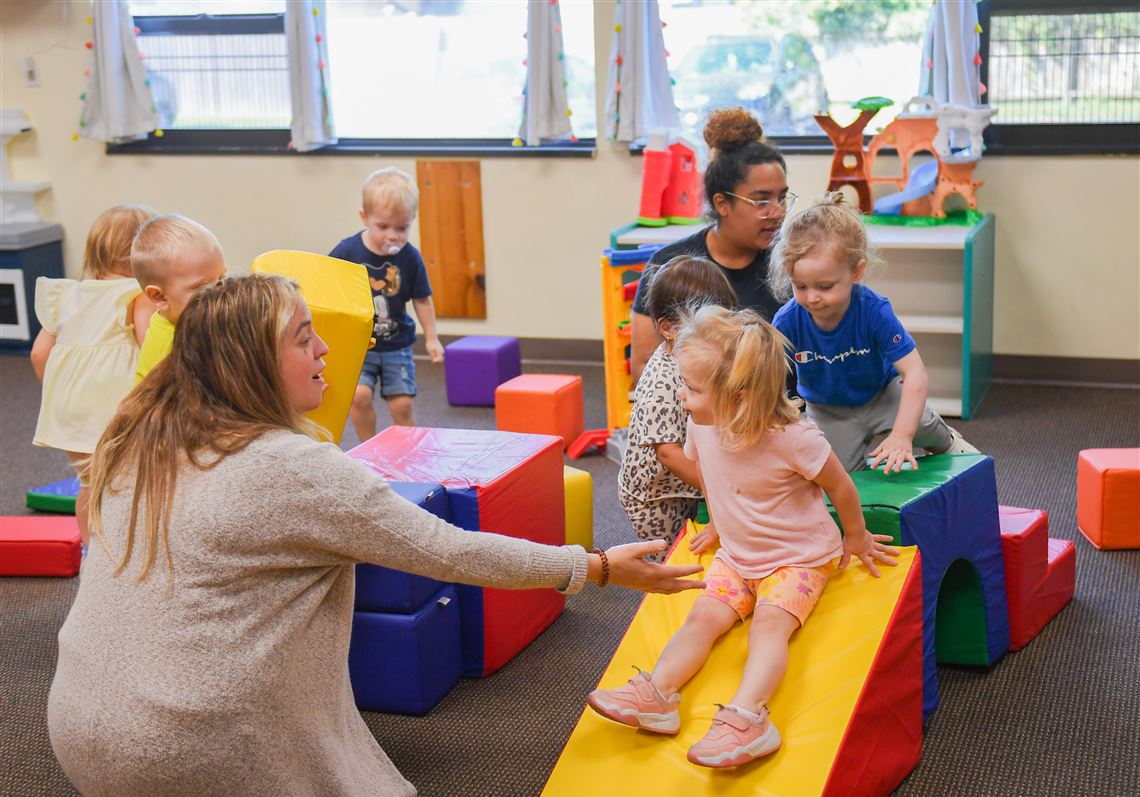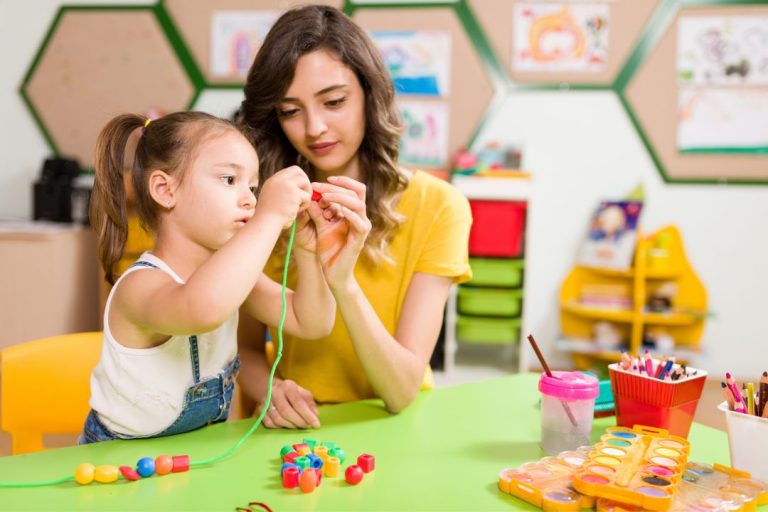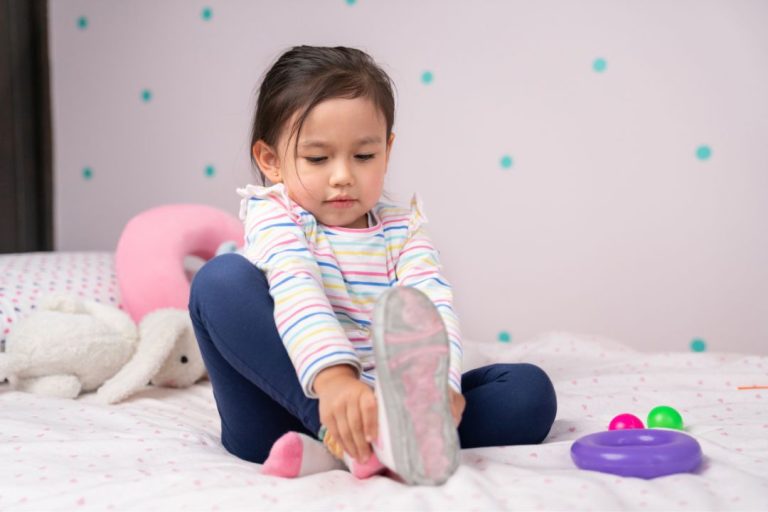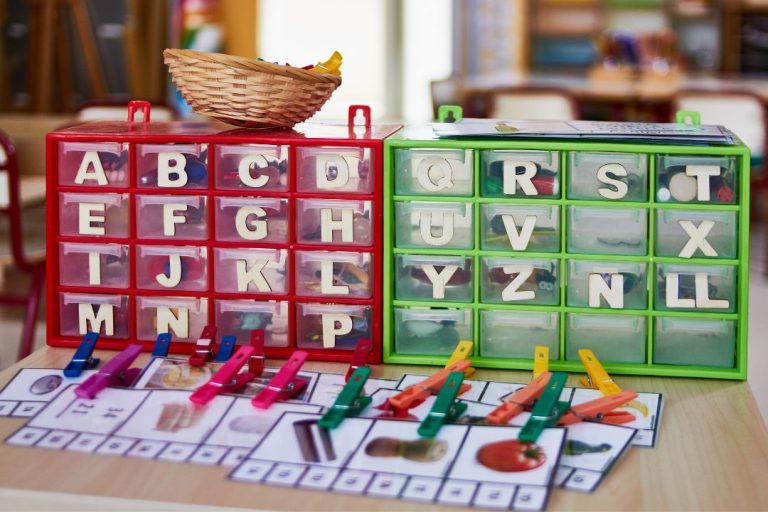How Many Days Should a 3 Year Old Go to Preschool: Expert Guidance

A 3-year-old should go to preschool for 3-5 days a week. It is recommended for their cognitive and social development.
Preschool is an important milestone in a child’s life. It provides a structured and nurturing environment where children can learn, play, and interact with their peers. The question of how many days a 3-year-old should go to preschool is a common concern for parents.
While there is no one-size-fits-all answer, experts recommend that children attend preschool for 3-5 days a week. This regular attendance allows them to benefit from the routine and consistency offered by preschool programs. It also gives them ample opportunities to engage in various activities that promote their cognitive, social, and emotional development. We will explore the factors to consider when deciding on preschool attendance for your 3-year-old child.
Balancing Preschool Duration For 3 Year Olds
When it comes to sending your 3-year-old to preschool, finding the right balance in terms of duration is crucial. Understanding the factors that influence preschool attendance duration is vital in ensuring your child’s educational and social needs are met. In this article, we’ll explore the typical child development at age three, the factors that can influence the duration of preschool attendance, and how to strike a balance between their educational and social needs.
Understanding Child Development At Age Three
At the age of three, children experience significant developmental milestones. They are becoming more independent, curious, and socially engaged. Their cognitive skills, language acquisition, and physical abilities are rapidly evolving. Three-year-olds thrive on exploration and hands-on learning experiences.
During this age, their attention span is still relatively short, and they may find it challenging to sit still and concentrate for extended periods. However, with appropriate guidance and support, they can engage in structured activities that foster their love for learning.
Factors Influencing Preschool Attendance Duration
There are several factors to consider when determining how many days a 3-year-old should attend preschool:
- Individual readiness: Each child is unique in their development and readiness for preschool. Some children may benefit from a gradual introduction and attend for a few hours a day, a few days a week. Others may be ready for a full school week right away. It’s important to gauge your child’s comfort level and adapt the duration accordingly.
- Home environment: The child’s home environment plays a role in the duration of preschool attendance. If a child has a supportive and stimulating home environment, they may not require as many days in preschool to complement their learning experiences at home.
- Socialization opportunities: One of the primary benefits of preschool is the opportunity for socialization. If a child has ample socialization opportunities outside of preschool, such as playdates, community activities, or organized classes, fewer days in preschool may be sufficient.
- Parental preferences and schedules: Parental preferences and schedules should also be taken into account. Some parents may prefer their child to attend preschool for a certain number of days based on their personal circumstances, work commitments, or financial considerations.
Balancing Educational And Social Needs
When determining the duration of preschool attendance for your 3-year-old, it’s crucial to strike a balance between their educational and social needs. While attending preschool offers valuable educational experiences, it’s equally important to provide opportunities for unstructured play, quality time with family, and participation in age-appropriate social activities outside of school.
Consider creating a routine that includes a combination of preschool days and free days. This way, your child can benefit from the structured learning environment of preschool while also enjoying the flexibility of unstructured play and family time. Remember to communicate and collaborate with the preschool teachers to ensure a seamless transition and continuity of learning experiences for your child.
Tailoring Preschool Time For Each Child
Every child is unique and develops at their own pace. When it comes to preschool, it’s essential to recognize and appreciate the individual differences in readiness among 3-year-olds. Tailoring preschool time for each child ensures they receive the right support and stimulation to thrive in their early learning journey.
Recognizing Individual Differences In Readiness
One of the key aspects of tailoring preschool time for each child is recognizing their individual differences in readiness. Some children may be more advanced in certain areas, while others may need additional support. By understanding each child’s strengths, weaknesses, and interests, educators can create a personalized learning plan that caters to their specific needs.
Here are three important factors to consider when recognizing individual differences:
- Developmental milestones: Each child achieves developmental milestones at their own pace. Some 3-year-olds may excel in language and social skills, while others focus more on fine motor skills or cognitive abilities. Recognizing these differences allows educators to adapt the curriculum and activities accordingly.
- Learning style: Every child has a unique learning style. Some may be visual learners, while others prefer hands-on activities. By recognizing and accommodating these differences, educators can tailor the preschool experience to match the child’s preferred learning style, enhancing their engagement and understanding.
- Interests and passions: A child’s interests and passions play a crucial role in their learning journey. When educators identify and incorporate these into the preschool curriculum, it ignites a sense of curiosity and motivation within the child. This personalized approach fosters a love for learning and encourages active participation.
Working With Educators For Personalized Schedules
Collaborating with educators is vital in creating personalized schedules that meet each child’s unique requirements. By working closely with the preschool staff, parents can provide valuable insights about their child’s interests, strengths, and challenges.
- Open communication: Regular and open communication with educators helps build a partnership focused on the child’s development. Sharing information about the child’s progress, interests, and any concerns helps educators make informed decisions regarding the child’s personalized schedule.
- Observations and assessments: Educators utilize observations and assessments to gather information about a child’s skills and developmental progress. Collaborating with parents to gather their insights and observations adds a holistic perspective, enabling educators to design a personalized schedule that aligns with the child’s needs.
- Goal setting: Setting goals together with educators ensures alignment between home and preschool. By understanding the child’s strengths and areas for improvement, educators and parents can work together to establish realistic and achievable goals, creating a tailored learning experience.
In conclusion, when it comes to preschool, tailoring the time and activities for each child is essential. Recognizing individual differences in readiness and working closely with educators allows for personalized schedules that cater to each child’s unique needs. This tailored approach fosters a love for learning, encourages active engagement, and sets the foundation for a successful early education journey.
Ideal Preschool Attendance Frequency
A 3-year-old should ideally attend preschool for 2-3 days a week to ensure a smooth transition, socialization, and gradual learning experience. Regular attendance in preschool can help build early educational foundations and foster independence in young children.
Research On The Recommended Number Of Days
Research has shown that the ideal preschool attendance frequency for a 3-year-old child is highly beneficial for their overall development. According to experts, attending preschool a certain number of days per week can provide children with a structured environment to foster learning, social skills, and independence.
Several studies suggest that attending preschool for at least 3 to 5 days a week provides the most optimal learning experience for 3-year-olds. This consistent attendance allows children to establish a routine, build relationships, and make steady progress in their educational journey.
Structuring A Weekly Preschool Routine
When structuring a weekly preschool routine for your 3-year-old, it’s important to consider their individual needs and your family’s schedule. Here’s a breakdown of how you can plan your child’s preschool attendance:
- Assess your child’s readiness: Before enrolling your 3-year-old in preschool, assess their readiness by considering factors such as their social skills, ability to follow instructions, and independence level.
- Choose the ideal attendance frequency: Based on the recommended research, consider enrolling your child for 3 to 5 days a week to ensure consistent learning and development.
- Create a structured routine: Establish a regular schedule for your child’s preschool days. This routine helps them become familiar with the daily activities, transitions, and expectations.
- Incorporate other activities: While preschool attendance is crucial, it’s also important to provide a well-rounded experience for your child. Plan activities such as playdates, outdoor adventures, or family time to complement their learning at preschool.
- Communicate with teachers: Maintain open communication with your child’s preschool teachers. Regularly discuss your child’s progress, any concerns, and seek their guidance for further enrichment activities outside of preschool hours.

Credit: www.post-gazette.com
Incorporating Expert Guidance
When it comes to deciding on the number of days a 3-year-old should attend preschool, it is important to consider the insights and advice provided by child psychologists. These experts have studied child development extensively and can play a crucial role in helping parents make an informed decision about their child’s preschool frequency.
H3insights From Child Psychologists On Preschool Frequency/h3
Child psychologists emphasize that preschool attendance can have various benefits for young children, including socialization, cognitive development, and early academic skills. However, the optimal number of days a 3-year-old should spend in preschool may vary depending on individual factors such as the child’s temperament, home environment, and their ability to adapt to new routines.
Many child psychologists suggest that starting with 2-3 days a week is a good balance for most 3-year-olds. This frequency allows the child to gradually adjust to the new environment, form relationships with teachers and peers, and gain exposure to structured learning experiences. It also ensures that children still have ample time for unstructured play and quality family time.
Additionally, some child psychologists recommend increasing the number of days gradually as the child grows older and more comfortable with the preschool setting. This gradual increase in attendance can support the child’s social and emotional development, as well as provide them with more opportunities for learning and growth.
H3how Many Days Should A 3 Year Old Go To Preschool: Expert Guidance/h3
The consensus among child psychologists is that consistency and routine are key for young children. Therefore, maintaining a set schedule for preschool attendance, whether it’s 2, 3, or more days, can have numerous benefits for a 3-year-old. These benefits include establishing a sense of familiarity, helping the child feel secure, and promoting better focus and engagement during preschool hours.
It’s important to remember that every child is different and what works for one may not work for another. Parents should consider their child’s individual needs, personality, and their family’s circumstances when determining the number of days their 3-year-old should attend preschool. Consulting with child psychologists or early childhood educators can provide additional insights and guidance tailored to the specific child.
In conclusion, when deciding on preschool frequency for a 3-year-old, it is essential to incorporate expert guidance. By considering the insights from child psychologists, parents can make a well-informed decision that promotes their child’s social, emotional, and cognitive development.
Preschool’s Role In Early Childhood Development
A 3-year-old attending preschool benefits from social interaction and cognitive development. Regular attendance 3-5 days a week helps them build skills in communication, problem-solving, and independence early on.
Cognitive And Emotional Growth In Preschool Settings
Preschool plays a crucial role in the cognitive and emotional growth of a three-year-old child. During these formative years, children are like sponges, eagerly absorbing knowledge and experiences that shape their development. Preschool provides a structured and nurturing environment that stimulates their cognitive abilities, enabling them to develop crucial foundational skills.
At this stage, children are introduced to various cognitive activities that help in developing their problem-solving and critical thinking skills. By engaging in puzzles, counting, and matching activities, they learn to understand cause and effect relationships, enhance their memory retention, and develop basic math and literacy skills.
Preschool also acts as a platform for emotional growth, as it allows children to explore and express their feelings in a safe and supportive environment. Through music, storytelling, and imaginative play, children develop creativity and self-expression skills, fostering their emotional intelligence.
Social Skills And Independence Through Regular Attendance
Regular attendance in preschool plays a significant role in developing social skills and independence in three-year-old children. Preschool provides a structured setting where children can interact with their peers, enabling them to develop important social skills necessary for their future interactions within the wider society.
Through group activities, children learn to share, take turns, and cooperate with others, nurturing their ability to work in a team. They also learn valuable communication skills by expressing their needs, thoughts, and ideas with their peers and teachers.
Preschool attendance also fosters the development of independence in children. It encourages them to take responsibility for their belongings, follow instructions, and complete tasks on their own. These experiences help build confidence and self-esteem in children, preparing them for future challenges.
Moreover, regular attendance in preschool introduces children to a daily routine, helping them develop time management skills and a sense of discipline.
Weekly Rhythms And The Learning Process
A 3-year-old should ideally attend preschool 2-3 days a week to aid in their learning process, allowing for a balanced exposure to educational activities and social interactions. This routine helps foster their cognitive, emotional, and social development at this crucial age.
The Importance Of Consistency And Routine In Learning
When it comes to a child’s educational journey, establishing a consistent and structured routine is crucial. The weekly rhythms and learning process at preschool play a significant role in shaping a child’s overall development and fostering their love for learning. Let’s dive into why consistency and routine are essential in a preschool setting, building a foundation for lifelong educational success.
Building A Foundation For Lifelong Educational Success
A solid foundation is the key to success in any aspect of life, and education is no exception. Attending preschool for the right number of days per week not only sets a routine for your three-year-old but also establishes a strong educational groundwork. Research has shown that children who attend preschool regularly are better prepared for kindergarten and have improved cognitive, social, and emotional skills. By providing them with consistent exposure to a structured learning environment, you are equipping your child with the necessary tools for future academic achievements.
Preschool serves as a stepping stone towards a lifetime of learning. It is where children start to develop essential skills such as literacy, numeracy, problem-solving, and social interactions. A consistent routine not only helps them adapt to the educational setting but also instills a sense of discipline and responsibility. Regular participation in preschool activities ensures that your three-year-old gets enough practice and guidance to harness their burgeoning curiosity and develop a passion for knowledge.
| Improved School Readiness | Enhanced Social Skills | Stronger Cognitive Development |
|---|---|---|
| Children who attend preschool regularly are better prepared for formal schooling and experience lesser academic challenges. | Regular interaction with peers and teachers helps develop vital social skills like sharing, communication, and cooperation. | A consistent preschool routine stimulates cognitive growth and critical thinking abilities through various engaging activities. |
Consistency is also vital as it helps build trust and familiarity. When your child knows what to expect each day and feels secure in their surroundings, it creates a positive learning environment where they can thrive. The routine of preschool provides a structured framework that supports their development and creates a sense of stability in their early years.
- Regular attendance ensures your child receives uninterrupted learning experiences and maintains a steady pace of progress.
- A consistent preschool routine minimizes any potential disruptions or setbacks in their learning process.
- By attending preschool consistently, your child establishes stronger relationships with their teachers and peers, fostering a supportive network for learning and personal growth.
In conclusion, the weekly rhythms and learning process at preschool have a profound impact on a child’s overall development. Establishing consistency and routine not only builds a strong foundation for lifelong educational success but also nurtures essential skills and social interactions. By giving your three-year-old the opportunity to attend preschool regularly, you are setting them on a path towards a bright academic future.
Optimizing Preschool Schedules For Family Balance
Optimizing preschool schedules for family balance includes deciding how many days a 3-year-old should attend preschool. Finding the right balance between education and family time is essential for the child’s overall development and well-being. Careful consideration should be given to the child’s needs and the family’s schedule to ensure a harmonious routine.
When it comes to choosing the right preschool schedule for your 3-year-old, finding the perfect balance between academic enrichment and family dynamics is crucial. Aligning preschool attendance with your family’s lifestyle not only ensures that your child receives the best possible education but also allows you to maintain a harmonious daily routine without sacrificing your work commitments or your child’s individual needs. In this article, we will explore the essential factors to consider when optimizing preschool schedules for family balance and provide valuable insights to help you make an informed decision.
Aligning Preschool Attendance With Family Lifestyles
Every family is unique, with its own set of priorities and daily routines. When it comes to preschool attendance, it’s important to take into account these individual factors to ensure a harmonious balance. By aligning your child’s preschool schedule with your family lifestyle, you can create an environment that fosters growth, development, and well-being. Here are a few aspects to consider:
Considering Parents’ Work Schedules And Child’s Needs
One crucial aspect to consider when optimizing a preschool schedule is the parents’ work schedules. Different families have different work commitments, such as full-time jobs, part-time jobs, or flexible working arrangements. It’s important to evaluate your work schedule and determine the number of days your child should attend preschool based on your availability and capacity to balance work and family life.
Equally important to consider are your child’s individual needs. Some children thrive with more social interactions and structured routines, while others may require additional time for independent play and family bonding. By understanding your child’s temperament and preferences, you can determine the optimal number of preschool days that will support their development while maintaining a healthy balance at home.
| Preschool Days | Work Schedule | Child’s Needs | Family Balance |
|---|---|---|---|
| 3 days a week | Full-time job | High social interaction | Comfortable balance |
| 2 days a week | Part-time job | Varied activities | Flexible balance |
| 5 days a week | Flexible working hours | Structured routine | Busy but fulfilling |
By considering both your work schedule and your child’s needs, you can find the right balance that ensures overall family well-being. Remember, every family is unique, and what works for one may not work for another. It’s essential to evaluate your personal circumstances and prioritize what aligns best with your family’s lifestyle.
Frequently Asked Questions For How Many Days Should A 3 Year Old Go To Preschool
How Many Days A Week Should A 3-year-old Attend Preschool?
Preschool attendance for 3-year-olds usually ranges from 2 to 5 days a week. It depends on the child’s needs, the family’s schedule, and the goals of the preschool program. Some families opt for a part-time schedule, while others choose full-time preschool to support their child’s early learning and social development.
What Are The Benefits Of Sending A 3-year-old To Preschool?
Preschool offers several benefits for 3-year-olds. It provides early exposure to important pre-academic and social skills, promotes language and cognitive development, encourages independence, and fosters a love for learning. Additionally, attending preschool helps children build friendships and develop social-emotional skills that are crucial for their future success.
What Is The Ideal Age To Start Preschool For A 3-year-old?
The ideal age to start preschool for a 3-year-old is generally between 2. 5 and 3. 5 years old. At this age, children are curious, ready for social interactions, and eager to learn. However, individual readiness can vary, so it’s important to consider each child’s developmental milestones, their ability to follow routines, and their readiness for separation from caregivers.
How Long Is A Typical Preschool Day For A 3-year-old?
A typical preschool day for a 3-year-old is around 2 to 3 hours. This time frame allows for a balance between structured activities like circle time, crafts, and learning centers, and unstructured play and exploration. Preschool schedules may vary, so it’s important to consider the needs and stamina of your child when choosing a program.
Conclusion
To ensure optimal development and socialization, a 3-year-old should ideally attend preschool for a few days a week. Preschool offers a structured environment where children can learn essential skills and interact with peers. While the specific number of days may vary based on individual circumstances, it is crucial to strike a balance between early education and ample time for play and family bonding.
Consult with educators and consider your child’s needs to determine the right preschool schedule. Remember, every child is unique, and finding the right balance is key to their growth and development.

With over 20 years of experience in early childhood education, Jane brings a wealth of knowledge to Classroom Journey. She specializes in play-based learning and has a passion for inclusive education.







4 Comments